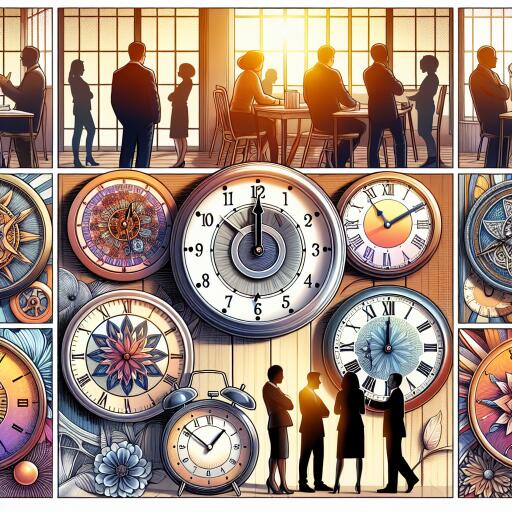Clocks Set to Leap Forward as Debate Swirls Around Ending the Time-Change Tradition
This weekend marks a significant change for Ireland as it prepares to advance its clocks by an hour, ushering in a contentious tradition that prompts widespread discussion about its future.
At 1 am on March 31, Ireland will transition from Greenwich Mean Time (GMT) to Central European Time (CET) for the duration of the summer months. This shift signifies the commencement of summertime, affecting all forms of timekeeping devices from wall clocks to smartphones.
The Irish Museum of Time in Co Waterford has been preparing for this change since last Sunday. Staff members are set to undertake the meticulous task of adjusting over 600 clocks to reflect the new time.
“As the clocks go forward by one hour at 1 am on March 31, our team at the Irish Museum of Time is gearing up to orchestrate the time change on our extensive collection,” a museum spokesperson noted. “Given the delicate nature of some timepieces, we’re proceeding with utmost care and precision.”
Rosemary Ryan, the acting curator of the Waterford Treasures Museums, added, “The adjustment process is slow yet deliberate, with only two team members assigned to the task at any given time. Each clock has its own idiosyncrasies, requiring a patient and cautious approach.”
Despite the inconvenience of losing an hour of sleep, experts reassure that the transition to longer days and brighter evenings will facilitate our adjustment to the new time.
There have been continual appeals over recent years to abandon the biannual time change. Proponents argue that maintaining summertime hours year-round could offer numerous benefits, including reduced energy consumption, fewer road accidents, and a boost to the tourism industry. Ireland once experimented with this approach from 1969 to 1971.
The concept of daylight saving has a storied history, with origins dating back nearly 130 years. It has various purported inventors, from George Hudson in New Zealand, who sought more leisure time after work, to William Willett in Britain, a golf enthusiast desiring extended playtime on the courses.
Interestingly, Winston Churchill was an early advocate for daylight saving, believing it would decrease coal consumption. During his tenure as England’s prime minister in World War II, he even introduced a double daylight saving time.
In 2019, the European Parliament voted in favor of ending the clock change practice to conserve energy resources. The same year, Dail TD Roisin Shortall proposed that Ireland adopt summertime hours a year ahead of schedule as a means to alleviate the impact of the Covid-19 pandemic lockdown. However, the proposal was ultimately not enacted.
While the idea of discontinuing the time change has circulated for decades, recent research underscores its potential advantages, such as reducing road fatalities and carbon emissions, improving mental health, and enhancing economic activity through increased evening light.
The tourism industry, in particular, stands to gain from additional daylight hours, offering extended sightseeing opportunities for visitors.
As the debate continues, the impact of this long-standing tradition on various sectors of society remains a topic of discussion. Whether the future holds an end to the clock-changing practice in Ireland, only time will tell.
